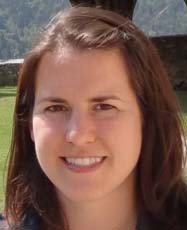Training Years: 2013-2014
Training Site: Instituto de Efectividad Clínica y Sanitaria (IECS)
Country: Argentina
Mentor: Pierre Buekens, MD, PhD; Jose Belizan, MD, PhD
Title: Health Facility Networking for Maternal Health in Buenos Aires, Argentina
Project Objectives: The Institute for Clinical Effectiveness and Health Policy (IECS) is conducting interventions in India and Ethiopia that will test the effect of emergency obstetric drills (drills) and facility assessment checklists (checklists) on the use of effective obstetric interventions for women with life-threatening complications, specifically preeclampsia and obstetric hemorrhage. These interventions will likely be extended to Brazil and Argentina.
The primary aim of this study is to extend the research of IECS to additionally evaluate the effect of their interventions (i.e., drills and checklists) in Ethiopia on referral frequency and timeliness from primary health facilities (PHFs) to the hospital by testing the following hypotheses:
H1a: Use of checklists in PHFs is positively associated with improved stock of supplies and staffing levels
H1b: Use of checklists in PHFs is negatively associated with referral frequency
H1c: Use of checklists in PHFs is positively associated with timely referral for emergencies for which the
facilities are not prepared
H2a: Obstetric drills in PHFs are negatively associated with referral frequency
H2b: Obstetric drills in PHFs are positively associated with timely referral to the hospital when required
Hypotheses H2a and H2b are grounded in the assumption that the emergency obstetric drills will increase the capacity of practitioners in primary health facilities to manage obstetric emergencies (to be tested by IECS), and that drills will increase their awareness of situations that they are unable to manage, thus resulting in timely referral to a hospital.
A secondary aim of this study is to identify additional barriers to timely and appropriate referral through qualitative research. During the formatives stage of research for the Argentina and Brazil studies, this study will also conduct focus groups with healthcare providers and other stakeholders to identify additional barriers to referral. Analysis of these focus group discussions will provide input into design of future studies to be proposed in a career award (K award).
NIH Support: Fogarty fellowship postdoctoral training award

